Overlooked Benefits of Home Gardening
Home Gardening Offers More than Just Food
Home gardening has been a national pastime for almost as long as there have been Europeans in America, and growing food has been important for a much longer period. Home gardening on a family based scale has gone from an absolute necessity for most of the population to a hobby for many in today’s world. Along the way there have been formal gardens, research gardens, and plant breeding gardens alongside the ever-present, humble home garden that provided fresh produce for the house. Many of the benefits of the home garden have been material in nature; a source of fresh vegetables when grocery stores had no coolers, money saved by growing one’s own food, better nutrition compared to the canned or aged offerings on the local shelves. Let’s look at just a few of the less than obvious benefits of a home garden that are not strictly physical in nature, but are valuable products of the garden nevertheless.
Organic gardening gives you a sense of accomplishment and independence, as well as a closer relationship with nature. -Dr. Marla Ahlgrimm
Anyone doing home gardening of any size will readily agree that gardening has a very physical component to it. The work associated with caring for the garden throughout the year can positively contribute to a better level of both cardiovascular and physical fitness, but those are just the introductory benefits. A reduction of osteoporosis has been a measurable result of gardening, even compared to activities such as jogging, swimming and aerobics, a study from the University of Arkansas of 3,310 women has shown. Kansas State University has found that the risk of diabetes is decreased through active gardening. Of course, the nutritional benefits of fresh home-grown produce are a powerful diabetes management tool right out of your back door. Several studies have found that diabetes rates are lower in neighborhoods and areas having community gardens, or where home gardens are common. Many studies show that when children are exposed to gardening, they will make better and healthier food choices for the rest of their life, enjoying a healthier, higher quality of life as a result. Their school grades are higher; they socialize easier and are better adjusted to the everyday stresses of life.
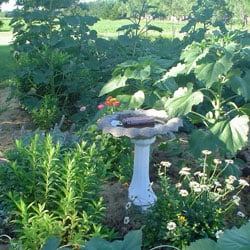
Linda’s Garden, NE
Better sleep and an improved outlook on life are easily experienced and well documented benefits from all of this gardening! In fact, the mental health rewards of gardening are strong enough that an entire field of study called horticultural therapy has been developed to help people working through psychiatric disorders find relief. Dementia and anxiety are calmed through gardening, leading to improved quality of rest through deeper and better sleep patterns. For many busy people, the garden is a welcome, treasured escape from job pressures and family responsibilities. The relief and relaxation found in the garden helps reduce stress levels that have been shown to contribute to chronic, deadly stress related diseases such as heart disease.
Many gardeners know that beneficial bacteria and microbes in the soil greatly improve plant health and productivity. Surprisingly, the same holds true for the gardener as well. A study published in the magazine Neuroscience in 2011 study discusses a strain of bacterium in soil, Mycobacterium vaccae, which has been found to trigger the release of seratonin that elevates mood and decreases anxiety. This bacterium has also been found to improve cognitive function.
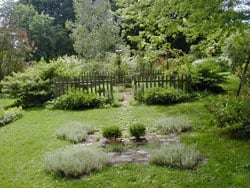
Criss’s Garden, OH
Just half an hour in the garden assists in toning and strengthening the physical body, yet the mental benefits seem to outweigh them completely. In a study published in 2011 in the Journal of Health Psychology, thirty gardeners performed a stressful task and were then randomly assigned to 30 minutes of outdoor gardening in their own plot or indoor reading. Gardening and reading each led to decreases in cortisol during the recovery period, but decreases were significantly stronger in the gardening group. Positive mood was fully restored after gardening, but further deteriorated during reading. These findings provide the first experimental evidence that gardening can promote relief from acute stress. Another study conducted by Tennessee State University found that people who garden regularly believed that the greatest benefit they received from the act of gardening was not a yard filled with flowers and vegetables, it was the significant reduction in general stress they felt in their lives.
A 2010 study by Farming Concrete measured total vegetable yields and produce value from 110 gardeners in 67 community gardens across New York City. These gardeners, collectively only using a total of 1.7 acres, grew 87,700 pounds of produce worth more than $200,000. This means the average community gardener in the study grew produce valued at $1,818 out of their plot. Looking beyond the obvious (and impressive) economic benefits, these community gardens strengthened the family bonds, created relationships outside the family that fostered trust and a powerful sense of belonging for the gardeners. Community gardens empower people to realize that they are not victims and can take responsibility and control of their lives, making choices that will positively benefit them not only for the short term but long term as well. They learn life skills that help provide food and therefore security and peace of mind along with methods of creating something that hadn’t existed before.
Gardens stimulate us as they engage all of our senses. Not just the sights, sounds and smells around us, but touch too; the textures of soil tell a story, and feeling; the emotional satisfaction of a harvest or a successful cutting as well as the deeper side in a sense of belonging or a realization of a spiritual connection or spiritual and emotional peace. These are just a few of the often overlooked benefits of a home garden.

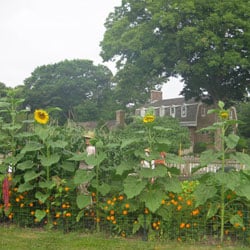

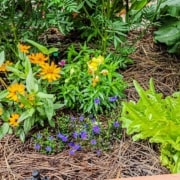 © 2024 Terroir Seeds | Underwood Gardens
© 2024 Terroir Seeds | Underwood Gardens
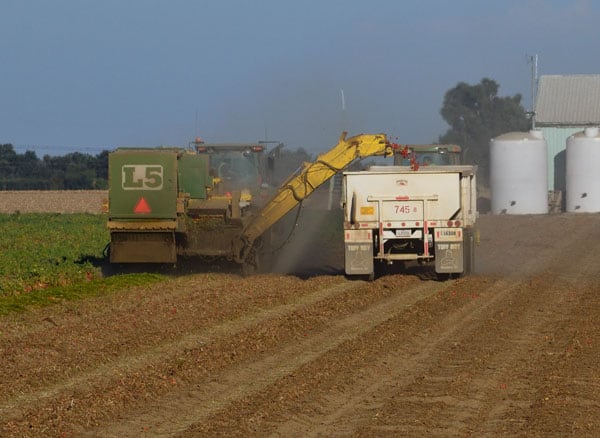
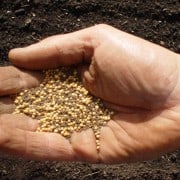

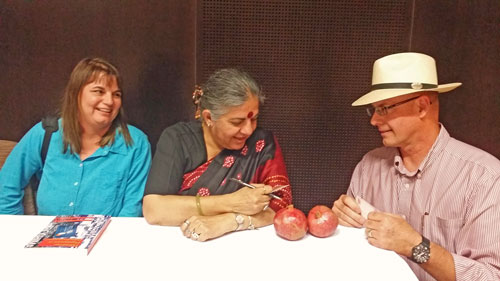

I slept great last night after a day of gardening; I have always considered gardening to be therapeutic, peaceful and way to bring mindfulness to the moment. Since I’m older and slower my garden is smaller this year with more herbs and flowers than usual but I still maintain a variety of vegetables, fruits and berries to enjoy fresh, canned, frozen and dehydrated throughout the year. I consider food preservation to be a continuation of the gardening process.
Another approach this year is teaching/sharing my knowledge with a young woman who wants to become a ‘gardener’ and more involved with the food she eats. Who knew that sharing my garden would be such an addition to my enjoyment of the moment.
I believe it was in 1995 that mycobium vaccae was discovered. Psychology Today published an article about it several years ago. I coiuld probably retrieve that info if you need or want it.
Great encouragement. Thanks
Thanks Sandie!
Thanks so much, Helen! It is wonderful to hear about knowledge being passed along.
Thanks, we will look it up!